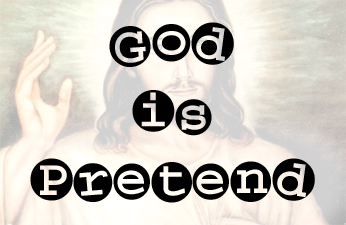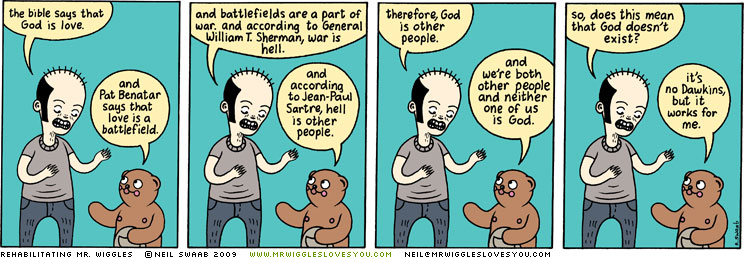 I was just looking in my neighbor’s yard. There is a large wooden crate behind his deck that hasn’t been touched in the last 6 months. As far as I can tell, it is there to stay. This got me thinking about people’s belief in god.
I was just looking in my neighbor’s yard. There is a large wooden crate behind his deck that hasn’t been touched in the last 6 months. As far as I can tell, it is there to stay. This got me thinking about people’s belief in god.
If my neighbor told me that inside his crate was $1 billion, I would probably call him crazy. But if he told me that I could have the $1 billion, he might pique my interest for a moment. I’d want to see some sort of proof or obtain some form of collateral, but he would have my attention. Here’s the bombshell: he tells me that to obtain the treasure, I would have to spend an indeterminate amount of time cleaning his house, mowing his lawn, doing other various chores, and finally giving him 10% of my annual income.
Well, screw that. Sure he lets me play basketball on his nice court, gives me a meal once in a while, and takes me on his annual ski trip with his family, but I’d still want some sort of evidence that the $1 billion actually existed before I donated vast amounts of my time and resources to obtaining it.
I know this isn’t a direct parallel to the god belief that so many among us hold, especially considering that the rewards of most modern religions don’t come until after death (if at all). Add in to that the uncertainty of whether our actions are predetermined or based on free will, and you have an even stickier situation which should give more people pause before devoting their livelihoods to the religion of their choice. Unfortunately, it does not.
People, for the most part, tend to carry on the beliefs of their ancestors and hold them dear without ever taking a moment to question them (After all, questioning those beliefs is a sin in itself.) What does it take to actually get someone with such a deeply internalized belief to question it? A traumatic experience? A trip to rock bottom? Too often, these events further entrench beliefs rather than diminish them.
I guess atheists need to start having a ton of babies.

